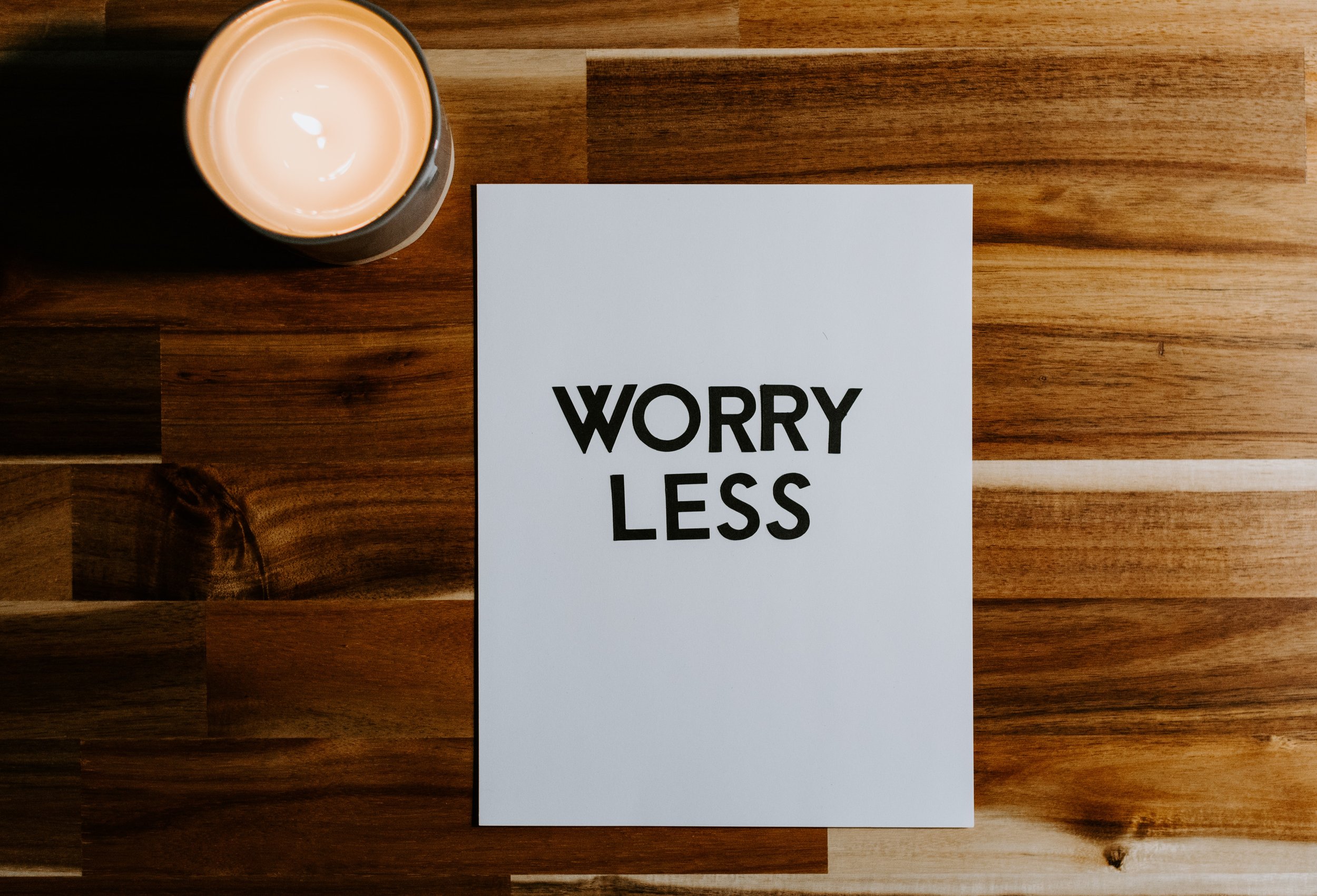Anxiety

Are you lazy or is this just plain old procrastination? In order to answer this complicated question, let’s first examine the definitions of both. Procrastination is defined as the act of delaying or postponing something. Laziness on the other hand is voluntarily choosing not to exert energy to complete something. Even though they sound similar, procrastination & laziness are not one in the same. Do you ever make a to-do list and then feel psychologically paralyzed when it’s time to begin? You are not alone. Many people get caught in a cycle of putting things off, which inevitably results in unwanted procrastination. The old saying goes, too many tomorrows & tomorrow never comes.

The 3-3-3 rule for anxiety is a technique that uses emotional grounding to reduce anxiety. The technique gets you to focus on the present, shifting your focus away from your worry. Negative thoughts tend to stem from the future or the past, so by focusing on the here and now, you can reduce your negative thoughts and gain some clarity. The 3-3-3 rule is a short exercise that you can use on a daily basis or during moments of high stress or anxiety.

Overthinking is a common struggle that can lead to increased anxiety, stress, and negative emotions. Most thoughts and feelings are very temporary. However, it is the chain of thoughts and emotions we may engage in that causes these undesired feelings to outstay their welcome. If you struggle with overthinking, you are not alone; there are several strategies you can use to reduce or eliminate habits of overthinking and improve your mental well-being.

Many people struggle with lower moods, sadness, lack of motivation, or worse when winter time comes. The cold and gloomy days can be difficult to navigate when you are someone who feels much more energized and brightened by the sun. You might have heard about seasonal affective disorder, or are just someone who feels different during this time of year. Whether you have been diagnosed with an official disorder, or are generally struggling with your mental health, such as anxiety, depression, or more, seasonal changes can be difficult for many people. If you are an active person and enjoys the outdoors, winter time can limit some of those opportunities. It can be chillier to run or to hike, the beach is less enjoyable, the wind and snow can pierce through your jacket even if you try to get out of the house. That can be a common mindset if you are not someone eager for snow-based activities lie skiing or snowboarding. How can we cope and feel more ambivalent about this time of year? The holiday cheery and energy has subsided, gathering’s aren’t as common, some people can get lost with what to do.

We have heard it before. New Years Resolutions. At the stroke of midnight, we kiss our loved ones, wish them a happy new year, and set some goals for ourselves to be better. If you are someone to abandon that shortly after you set your sights on change, you might be reading this blog. Why is it easier for people to trail off with their goals and revert back to their old ways? Changing habits is actually hard work and because that work requires more time, attention, and commitment, it’s easier for us to let go of that and be where it is comfortable, our “old” self. Perhaps you have reached a point where you are entirely fed up with who that person is.

Anger is a very common and natural emotion that everyone experiences regularly throughout their lifetime. However, anger can spike and become intense and difficult to manage, this is when it can have negative consequences on both in the short-term and long-term. If struggling with anger management is something you can relate to, there are several skills and tools you can use to manage anger spikes and express your true feeling effectively.

Coping skills are a set of behaviors or actions that have positive benefits to one’s mental health. They can be used in situations to help alleviate any difficult emotions (ie: anger, sadness, anxiety, etc.) or they can be used daily to assist in maintaining a positive mood.
The unique thing about coping skills is that they are different for everyone! Where one skill may be helpful for you, it may be something that does not work for someone else. It may take trial and error of varied coping skills to see what is unique to helping you. Try out different hobbies or interests to see if they are helpful in alleviating those difficult emotions, commonly these hobbies/interests can also work as coping skills. Additionally, try out coping skills that you may be skeptical about because they could surprise you in a positive way. As time goes on and you begin to learn more about yourself, it can become easier to recognize the coping skills that help you to manage these difficult emotions best.

The term “gaslighting” was one of the top searched terms of 2022. So what is gaslighting? And how can you identify it?

Many people struggle with body image, especially with societal pressures and constantly seeing perfectly photoshopped celebrity bodies online. However, it is important to remember that there is no standard of beauty and you are beautiful just the way you are.

New Years has recently passed and many of us have set resolutions or goals we want to accomplish in 2023. For many of us, as great and important as these goals may be, we might find it difficult to stick to and achieve them. Many times we might find it difficult to start working towards our goals, or if we start, we might stop shortly after beginning. Although there are several factors that may contribute to our difficulties in achieving our new goals, one common one is that these goals are often too large or too vague. One strategy we can use to help us toward reaching our goals is by setting “SMART” goals. SMART is an acronym for Specific, Measurable, Attainable, Realistic and Timebound. These components work together to help to keep us motivated as we start and progress toward our goals.